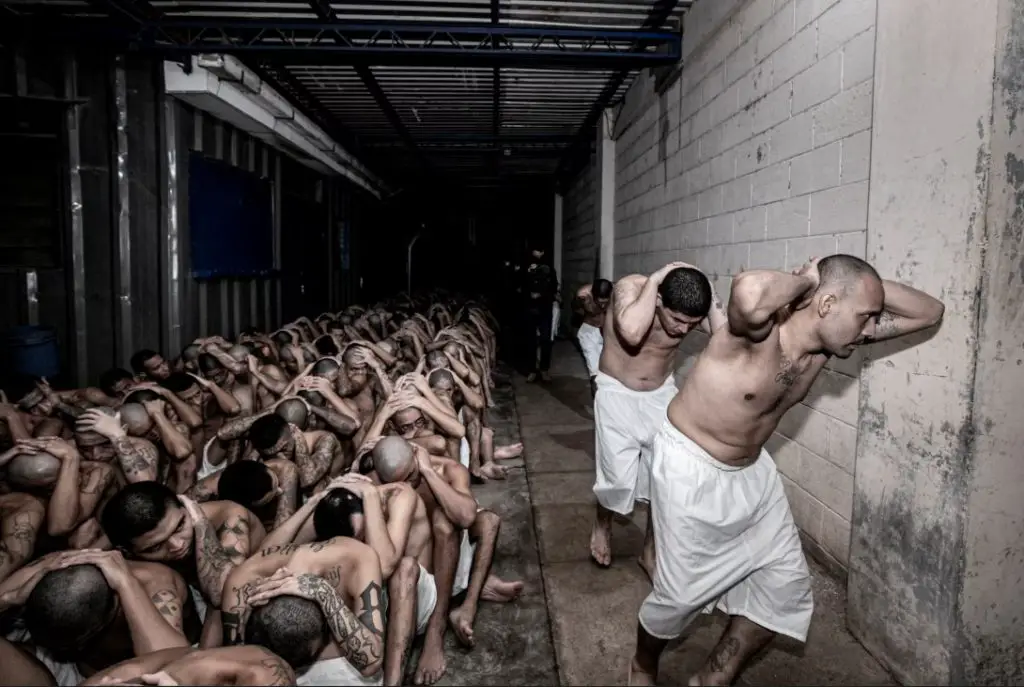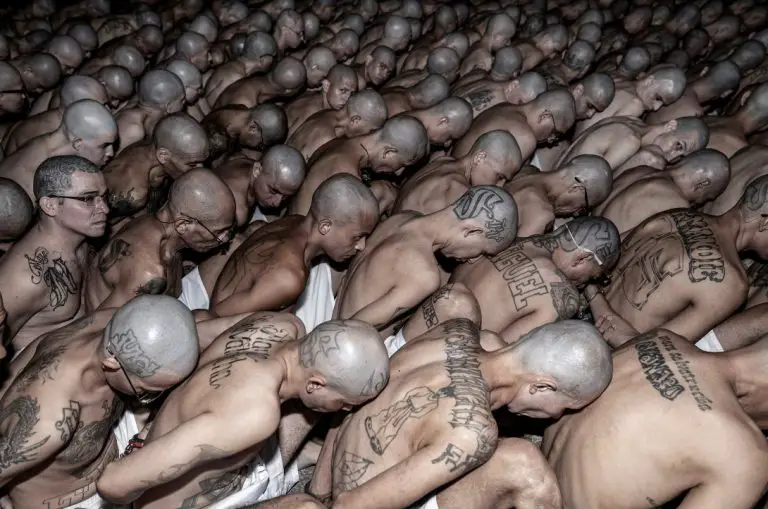El Salvador’s notorious mega-prison, CECOT, is widely considered one of the harshest in the world, housing up to 40,000 inmates under strict and grueling conditions. Prisoners have their heads shaved every five days, sleep in overcrowded cells with no mattresses, and are given only small portions of unappetizing food. With no activities other than reading one of two Bibles per cell, they spend most of their time confined in inhumane conditions, often enduring extreme heat with limited air circulation.
This prison has now gained international attention due to a deal reportedly secured by the Trump administration to send foreign nationals convicted in the U.S. to CECOT. The agreement also included an offer for El Salvador to take in U.S. citizens and legal residents convicted of crimes, though officials later clarified there were no immediate plans to send American citizens there. Legally, such a move would be difficult, but the deal could mean deported foreign nationals would face imprisonment in CECOT.

Human rights organizations have long criticized the prison, describing it as a “black hole of human rights” where inmates are subjected to extreme restrictions and indefinite confinement. The facility operates under permanent lighting, with temperatures soaring to 35°C, and detainees are reportedly never allowed to return to their communities. Despite these concerns, the Salvadoran government maintains that CECOT is an essential tool in its crackdown on gang violence.
While the possibility of sending U.S. citizens there remains uncertain, the mere proposal has sparked debate. Critics argue it raises serious ethical and legal questions, while Trump’s administration sees it as part of its broader strategy to deter crime and illegal immigration. The discussion around CECOT highlights the growing tensions between law enforcement policies and human rights concerns on the global stage.




